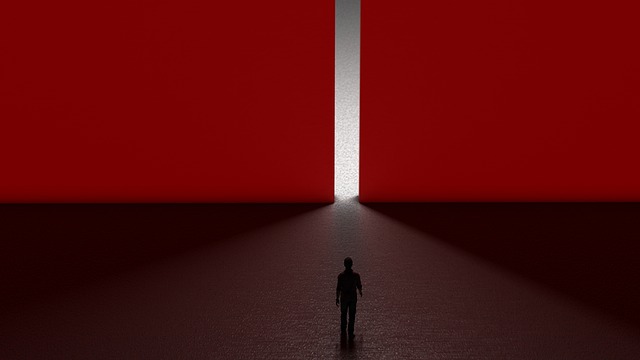A Walk Through the Ashes of Narthwich by Leah Hearne

A Walk Through the Ashes of Narthwich by Leah Hearne
It’s snowing in Narthwich.
A draft brushes against my coat and I pull it tighter around my arms. White flakes are lured to the fabric like moths to the light, and as I attempt to brush them off, they simply stick to my palms. Turning the corner, I see rows of brick townhouses powdered with a monochromatic white, only distinguished by stone plaques with eroded numbers. A couple streetlamps flicker on and off, sputtering electric light over the sidewalks.
For a moment, I close my eyes and pretend I’m in a winter wonderland, treasuring the softness of snow beneath my boots, the caress of the wind, and the sweet feeling of a snowflake dissolving in my mouth… It’s this final action that causes reality to viciously set in.
I recoil as the taste of charcoal overpowers my taste buds. It’s not the kind of burnt flavor you find on caramelized onions or on the rim of a Dutch oven, but instead the flavor of igneous rock cooked for millions of years under the skin of the earth. It tastes of destruction, of panic, of houses being buried in volcanic ash.
Yelena, my mission partner, shoots me a concerned look. Between the newly-formed wrinkles sagging through her skin, her sunken eyes, and the ash whitening her hair, she appears to have aged fifty years too soon. “Are you alright?” She asks as I cough up gray saliva.
“I’m fine,” I reply in a hoarse voice. “Just got distracted.”
We spend a few moments in silence and check the windows of abandoned buildings. Although our main goal is to scout for supplies, we keep a keen eye for stragglers as well. The combination of brutal April weather and lack of medicine has killed over 200 people at our base, subsequently freeing up 200 beds. If there were ever a time to discover someone, it would be now.
“Will this be difficult for you?” Yelena asks. “I couldn’t get through our last mission, so there’s no embarrassment in heading back to base.”
I shake my head. “It’s fine. Narthwich isn’t my hometown anymore— there’s nothing to see here.”
We fall silent once again. Many things were killed the day Yellowstone’s supervolcano unleashed hell on earth— millions of people, thousands of homes, dozens of cities, and the joy of casual conversation. I ration out my words the same way I ration out food or water, giving only what’s necessary.
Our silence lasts until we’re confronted with a fork in the road.
“Should we split up?” I ask. “Maybe complete this mission in half the time?”
“Good idea. We can meet at,” Yelena scans the premises, before pointing towards the town hall, “that building in a couple hours.”
“Sounds good.”
We promptly go our separate ways— Yelena down Station Avenue, I down Elwood Lane.
Once her footsteps fade into silence, I take a deep breath. Memories are looming around my head, whispering a name here, a conversation there… But I focus. We’re looking for supplies and stragglers. Supplies and stragglers. Supplies and stragglers. Supplies and stragglers.
When the repetition loses its impact, I remind myself again of the day Yelena attempted a mission through her own hometown. We had just arrived in the city, when a sign reading “GREATER DES MOINES, BETTER TOGETHER, BETTER FOREVER” appeared on our left. She turned bright red as though she were being strangled, and after a few twisted breaths, I realized she was hyperventilating. Tears were falling from her eyes, but they were so quick and violent I believed she was bleeding, especially when she collapsed on the concrete and bruised half her face.
For several long minutes, I dragged her back to the car, fearing I was dragging her corpse. She fortunately gained consciousness on our way back to base, dazed yet unharmed. The paramedics informed us she had suffered a panic attack and mild concussion, commenting on “how lucky she was”.
Yelena still refuses to discuss it, so I’m still not certain what the cause was. Perhaps she was reminded of evacuating the city during the eruption, perhaps she recalled a traumatic event from her youth, perhaps she was disoriented from being tossed between the past and present… Regardless of the reason, I believe staying focused on my current mission is essential.
As my eyes now dart from building to building, I make sure they don’t linger on any one location for too long. The Heart-Healthy Clinic, Bobbie’s Bar and Diner, Northcott Auto Repair Shop… And at the end of Elwood Lane, the Narthwich Cinema.
Force of habit suddenly kicks in, and I take a second glance.
In the months after I got my license, I would constantly take late-night drives around town, always anticipating the cursive letters on the cinema’s storefront and admiring how they bathed the streets in red glory. I would sometimes watch the line of people wait for their seats by a glass ticket booth, plastic-encased movie posters gleaming in my headlights. The actors and actresses were always glamorous, the smell of popcorn always inviting, and the low chatter always making me feel less alone. Sometimes I’d even roll my car to a stop and impulsively join the line, praying they wouldn’t sell out before I purchased my own ticket…
…I quickly turn away, fearing I’m about to fall down a slippery slope, when a realization strikes: My own past has been buried by a need to survive, causing the Narthwich Cinema to fade out of my consciousness. This memory of the storefront reminds me of living for the sake of life, not for the fear of death.
I look back. My eyes study the cinema’s exterior for a bit. The neon has lost its glow, the glass booth is shattered and rusted, and the posters hardly visible. Nevertheless, the cinema still stands, an artifact from a better time.
Pacing around the entrance the way a swimmer tests water before diving in, I allow myself brief moments of recollection: Buying my younger sister a ticket on her 7th birthday, nervously faking my age to see an R-rated movie when I was twelve, worrying if a sweater was too casual before my first job interview… Each memory guides me further from reality and closer to the past.
It isn’t long before I open the fraying wooden door, ignoring the way it creaks.
Mrs. Daniels gave me a job at the Narthwich Cinema before my sophomore year of high school. I had only worked as a babysitter before, so the idea of running concessions and vacuuming theater floors seemed exciting to me. I jumped on the first opening that became available, aced the interview, and received my pinstripe uniform within a week.
I walk into the dim lobby now, squinting in an abyss of darkness. My hand instinctively reaches into my bag for a flashlight before I remember the series of switches next to the entrance.
Taking a deep breath, I flip them all at once.
In the span of a millisecond, I’m transported from the present to the past. Nearly all of the LED lights are still in operation, and although they flicker like flames in the wind, they illuminate the room better than I expected. Patches of velvet carpet have dissipated into the ground, but the fabric that exists is still a luscious shade of red. The wallpaper manufactured to resemble dark wood is tearing and speckled with mold, but when I blur my eyes it appears undamaged. Most impressively, the ceiling appears stable, unlike the thousands of collapsed roofs throughout Iowa.
I smile. Customers used to gather here before movies on weekend nights, conversing in low murmurs as employees would scurry between the auditoriums and ticket booths. There was always this unique warmth, yellow like an evening sun, that would fill me with contentment.
Walking further into the lobby, I’m soon confronted with rows of decaying concession stands. I used to run them with my friend, Susan, and we would have contests to see how high we could overflow a bucket of popcorn. Customers initially loved this, before we grew too competitive and began meticulously comparing our buckets in height, arguing for minutes over which was the winner. We had to find a new game after Mrs. Daniels threatened to fire us, but the memory has stayed vivid in my mind ever since.
The popcorn is rotting now, covered in fungi and inhabited by several cockroaches. The image is more than a little nauseating, so I quickly head towards the other side of the room, where the cutout of a soda bottle stands proudly in front of the wall. Although termites have pierced a few holes through the cardboard, the silhouette remains intact, and I momentarily mistake its shadow for a person. Unfortunately, the illusion soon fades, and I realize how alone I truly am.
Sighing, I venture further into the theater and enter another well of darkness. Even when the cinema was still in operation, the great hallway was always dimly-lit so that our audiences wouldn’t get visual whiplash when exiting their movies.
I’m reminded of Gregory, a thirty-something employee who always made a point of asking customers how their movie went. He often endured full analyses of films, listening intently as he vacuumed fallen popcorn kernels and disinfected seats. After he won “employee of the month” for half a year, I began emulating his practices, before starkly realizing that I wasn’t blessed with Gregory’s patience. I would often make up excuses mid-conversation so I wouldn’t have to hear about allegories and motifs for another moment.
I’d kill for one of those reviews now.
Turning left into Auditorium “B”, I press on the heavy door until it begrudgingly swings open and glance around. There’s a single light switch by the entrance and I flip it on. A cackling resounds through the air and the lights short-circuit like miniature fireworks. Afraid they might shatter and send flames coursing through the carpet, I quickly flip it off and pull out my flashlight instead.
Walking up the ramp, I’m soon confronted with three ghostly trash bags. The first is for disposables, the second for recyclables, and the third for 3D glasses. Reaching in, I retrieve a pair and slide it on. The world becomes a disarray of red and blue streaks, sending waves of dizziness through my head.
Whenever the Narthwich Cinema would show a 3D movie, I always snatched a couple pairs from the trash and brought them home to my younger sister. She would scurry around the house observing every lamp and ceiling light, marveling at how strange they looked in the multicolored lens. Realizing the children back at base might also get a kick out of them, I grab a few more pairs and place them inside my backpack.
My attention then falls on the LCD projector in the center of the auditorium. It seems to watch my every move like an omniscient eye, reminding me of its once majestic glow.
Whenever a particularly boring movie would play on screen, I always gazed at the projector instead, admiring the precise rays of light it emitted. Previously invisible dust particles were illuminated, colors danced midair, and I felt as though I were staring at the sun as opposed to a piece of machinery.
The projector is asleep now. Perhaps an advanced technician will someday awaken it, but that’s a task well beyond my capabilities.
Climbing up the stairs to the back of the auditorium, I sit down on one of the cotton seats, relief swelling in my legs. Swinging off my backpack, I stare longingly at the blank screen, wondering what kind of miracle it would take for a movie to start playing.
For a brief moment, I can hear the chatter of people next to me, the crunch of teeth on popcorn, the loud bubbling of someone trying to finish their slushie. For an even briefer moment, I can see a black-and-white movie on screen— two men smoking their cigars in the lazy afternoon heat.
“What are you doing in here?”
I turn around, realizing the image of the two men was created by light from an open door, the smoke from Yelena lighting a lantern. She looks solemn as usual, but there’s something else on her face that I can’t quite determine.
“Sorry,” I reply, coming to grips with how long I’ve spent in this delusion. “…I… I didn’t mean to get so distracted… How did you know I was in here?”
“This was sitting outside the theater’s entrance,” she says, climbing up the stairs and handing me a blue cloth. We always keep a few clothing scraps in our backpacks in case the ash becomes overwhelming. With a bit of water, it becomes a powerful defense against suffocation. “I figured you went inside,” she continues, “and wanted to make sure you hadn’t run into any trouble.”
“Trouble? How long has it been since we split up?”
“An hour.”
“Christ… I didn’t even notice.”
“Don’t worry about it.” Yelena says as she sits next to me. She stares at the screen for a moment, but her eyes don’t reflect a movie scene— they reflect an abyss. “What are you looking at?”
I shrug. “An escape.”
“Didn’t you say there was nothing to see here?”
Although we’re confined inside the theater walls, the taste of ash fills my mouth. I become aware of the empty seats, of the desolate screen, of the bodies lying in a field a mile away. For the first time since Yellowstone erupted, my hands shake with desperation, having briefly felt the terrible warmth of the past.
“I know,” Yelena says as she steadies my palm in hers. “It’s a vicious cycle.”
An ugly sob escapes my lips and tears pool on the decaying seat, feeding the clumps of mold. Reality gnaws at my chest, reminding me of years of hunger. My throat feels dry, my back aches, and my mind loses a layer of numbness it has developed in order to survive.
I realize why Yelena collapsed on our mission through Des Moines.
THE END
Copyright Leah Hearne 2020



